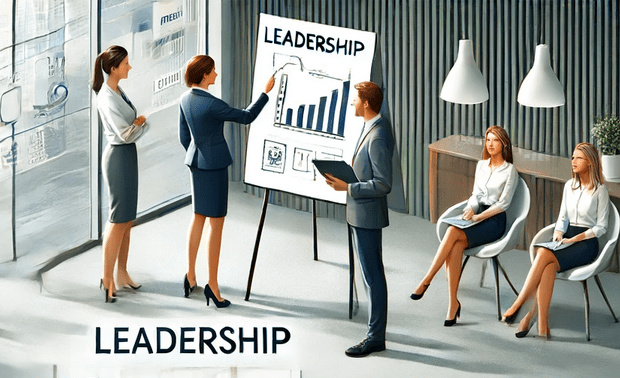Mastering Management Skills:
A Comprehensive Guide for Job Seekers and Enterprise Leaders
In the dynamic world of business, effective management is crucial for the success of any organization. Management skills, especially within the context of communication, play a vital role in the successful coordination of tasks and teams. These skills enable managers to plan, organize, direct, and control resources to achieve specific goals. This article provides an in-depth look at management skills, focusing on their importance, key components, and applications across various fields. Additionally, we will discuss how Curate Partners can assist in finding specialized talent to enhance your team’s management capabilities.
Definition and Importance
Management skills involve the ability to plan, organize, direct, and control resources to achieve specific goals. In the context of communication, these skills refer to the ability to clearly and effectively interact with individuals or teams to ensure that tasks are understood, progress is monitored, and objectives are met. Effective communication is the backbone of successful management, enabling managers to align their teams with organizational goals and foster a productive work environment.
The Role of Management Skills in Communication
Effective management is not just about giving orders or setting deadlines; it involves a comprehensive approach to communication that ensures clarity, collaboration, and cohesion. Managers must be adept at conveying their vision, delegating tasks, resolving conflicts, and providing feedback. This ensures that everyone on the team is working towards the same objectives and understands their role in achieving those goals.
Key Components of Management Skills in Communication
Planning and Organization
Planning involves setting goals and determining the best way to achieve them. This requires clear communication of objectives, deadlines, and roles. A well-organized plan ensures that all team members understand their responsibilities and the timeline for achieving the project goals.
Team Coordination
Managing a team requires open channels of communication to ensure everyone is aligned with the project goals, responsibilities, and timelines. Regular meetings, updates, and feedback sessions help maintain this alignment and address any issues that may arise.
Conflict Resolution
Managers must address and resolve conflicts through careful and considerate communication to maintain a productive work environment. Effective conflict resolution involves listening to all parties, understanding their perspectives, and finding a mutually acceptable solution.
Decision Making
Effective managers need to communicate decisions clearly and explain the reasoning behind those decisions, ensuring understanding and buy-in from the team. Transparent decision-making processes build trust and encourage team members to support the manager’s decisions.
Feedback and Performance Reviews
Providing constructive feedback and conducting performance reviews require strong communication skills to encourage growth and improvement. Managers must be able to deliver feedback in a way that is both honest and motivating, helping team members develop their skills and enhance their performance.
Motivating and Influencing
Utilizing communication skills to inspire and motivate team members towards achieving their best is crucial for effective management. Managers must be able to convey their vision and enthusiasm, creating a positive and productive work environment.
Negotiation Skills
Managers often negotiate with other departments, vendors, or stakeholders, and this requires clear, persuasive communication. Effective negotiation involves understanding the needs and goals of all parties and finding a solution that satisfies everyone.
Applications in Various Fields
Management skills are essential across all sectors, including:
- Business: For coordinating teams, managing projects, and driving business growth.
- Healthcare: For overseeing medical staff, managing patient care, and ensuring efficient healthcare delivery.
- Technology: For leading development teams, managing IT projects, and driving innovation.
- Education: For managing faculty, overseeing educational programs, and ensuring academic success.
- Government: For coordinating public services, managing resources, and implementing policies.
In each of these fields, the integration of management and communication skills enables professionals to lead effectively and achieve their objectives.
Development and Enhancement
Courses and Training
Management skills can be honed through formal education, such as courses and training programs focused on management and communication. These programs provide structured learning and practical insights into effective management practices.
Mentorship
Learning from experienced managers through mentorship can provide valuable guidance and support. Mentors can share their experiences, offer advice, and help mentees navigate the challenges of management.
Hands-On Experience
Practical experience is essential for developing management skills. Taking on leadership roles, managing projects, and working with diverse teams provide opportunities to apply and refine these skills.
Learning from Failure and Success
Both failures and successes offer valuable learning experiences. Reflecting on what went well and what could be improved helps managers develop their skills and become more effective leaders.
Challenges
Miscommunication
Miscommunication can lead to misunderstandings, conflicts, and delays in achieving goals. Ensuring that communication is clear, consistent, and open is crucial for successful management.
Managing Diverse Personalities
Managers must navigate the complexities of working with individuals who have different personalities, work styles, and backgrounds. Effective communication and empathy are key to managing these differences and fostering a cohesive team.
Balancing Multiple Responsibilities
Management involves juggling various tasks and responsibilities. Prioritizing tasks, delegating effectively, and managing time efficiently are essential for handling these challenges.
Relevance to Career Growth
Strong management skills, with a focus on effective communication, can lead to promotions, greater responsibilities, and career growth opportunities. Professionals who can manage teams effectively, communicate clearly, and drive results are highly valued in any organization. Developing management skills can open doors to leadership positions and enhance career prospects.
Conclusion
Management skills within the context of communication are fundamental to achieving success in various roles and industries. Managers must communicate plans, align team efforts, resolve conflicts, and motivate team members. Investing in developing these skills not only benefits the individual manager but contributes to the overall success of the organization. Encouraging students to focus on these skills can lay a strong foundation for their future careers and offer them valuable insights into leading and coordinating efforts in professional settings.
Curate Partners: Your Solution for Specialized Talent
At Curate Partners, we understand the critical role that management skills play in today’s business landscape. Our consulting services are designed to help you find the specialized talent you need to enhance your team’s management capabilities. We provide a comprehensive suite of services, including:
Talent Acquisition
We help you identify and recruit top managers who align with your company’s vision and goals. Our rigorous selection process ensures that you get the best fit for your organizational needs.
Skill Development
Our training programs and workshops are designed to enhance the management skills of your existing team. By keeping your team at the forefront of industry trends and best practices, we help you maintain a competitive edge.
Strategy Formulation
We work with you to develop effective management strategies that address your organization’s unique challenges. Our consultants bring a wealth of experience and insights to help you navigate complex management needs and achieve your goals.
Performance Analytics
We provide detailed analytics and performance measurement services to help you track the success of your management initiatives. Our data-driven approach ensures that your strategies are optimized for maximum impact.
Change Management
Our experts assist in managing organizational changes, ensuring smooth transitions and effective communication throughout the process. By addressing resistance and fostering a collaborative environment, we help you implement changes successfully.












